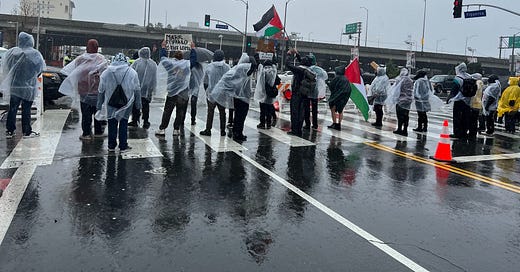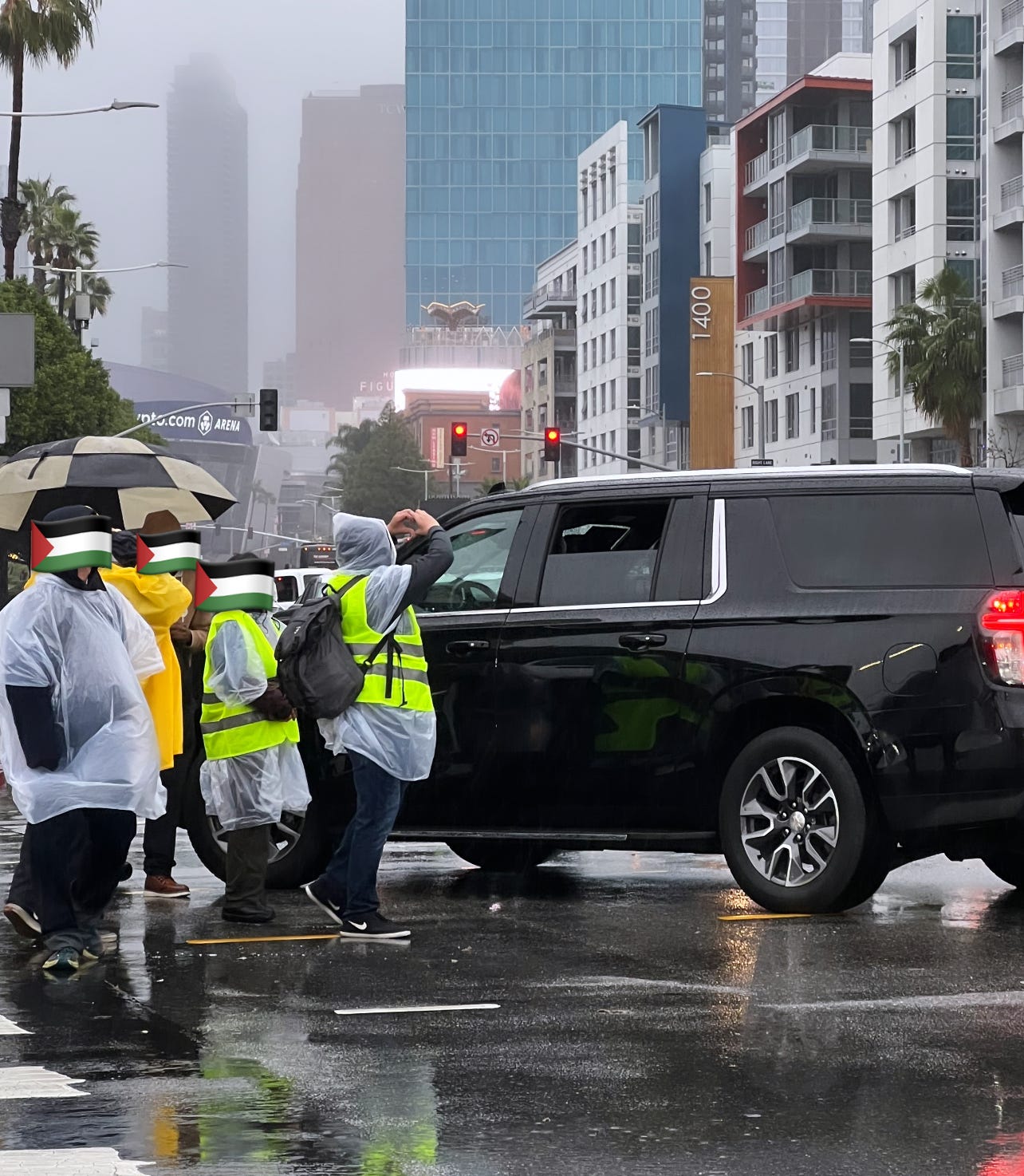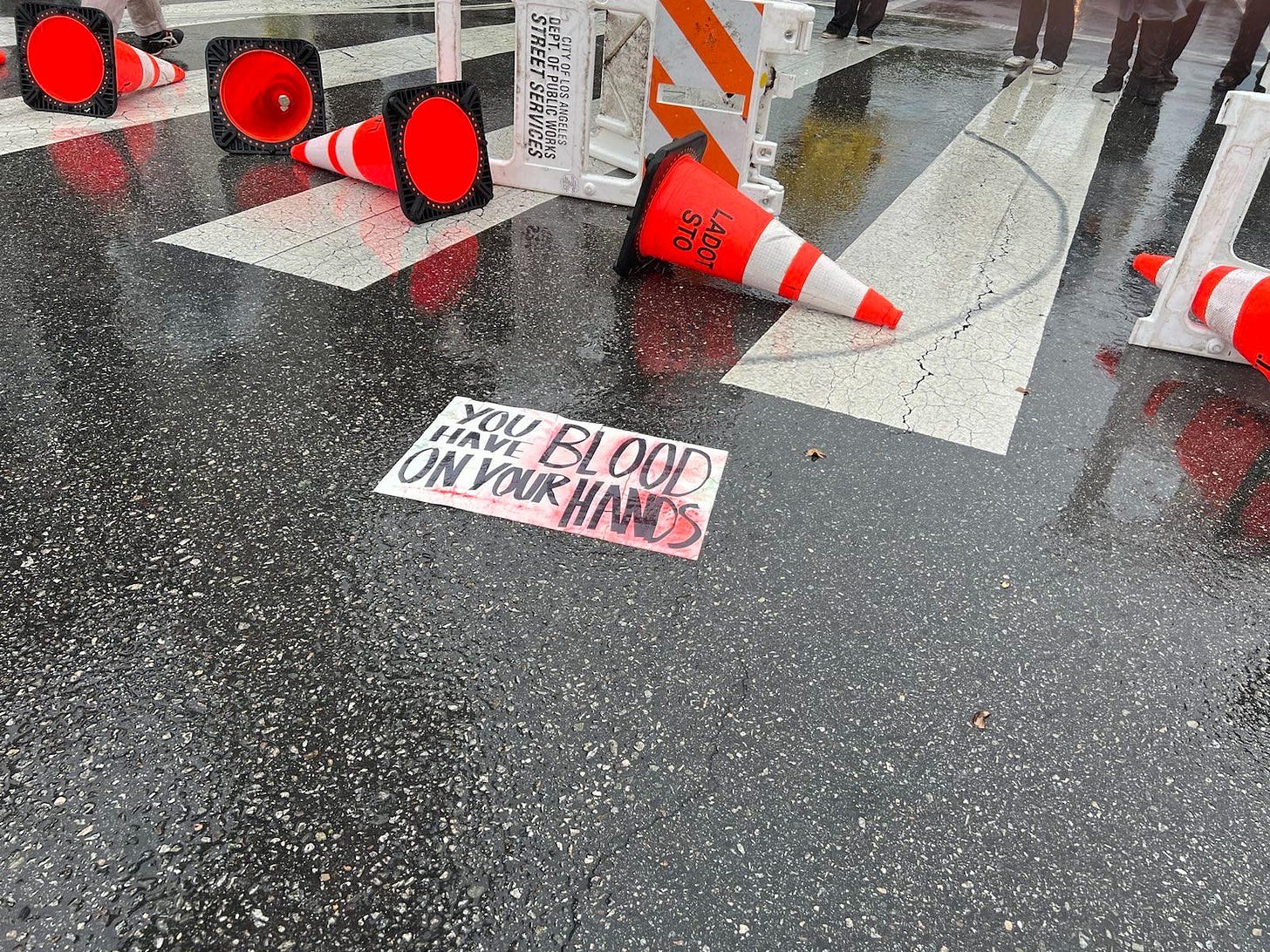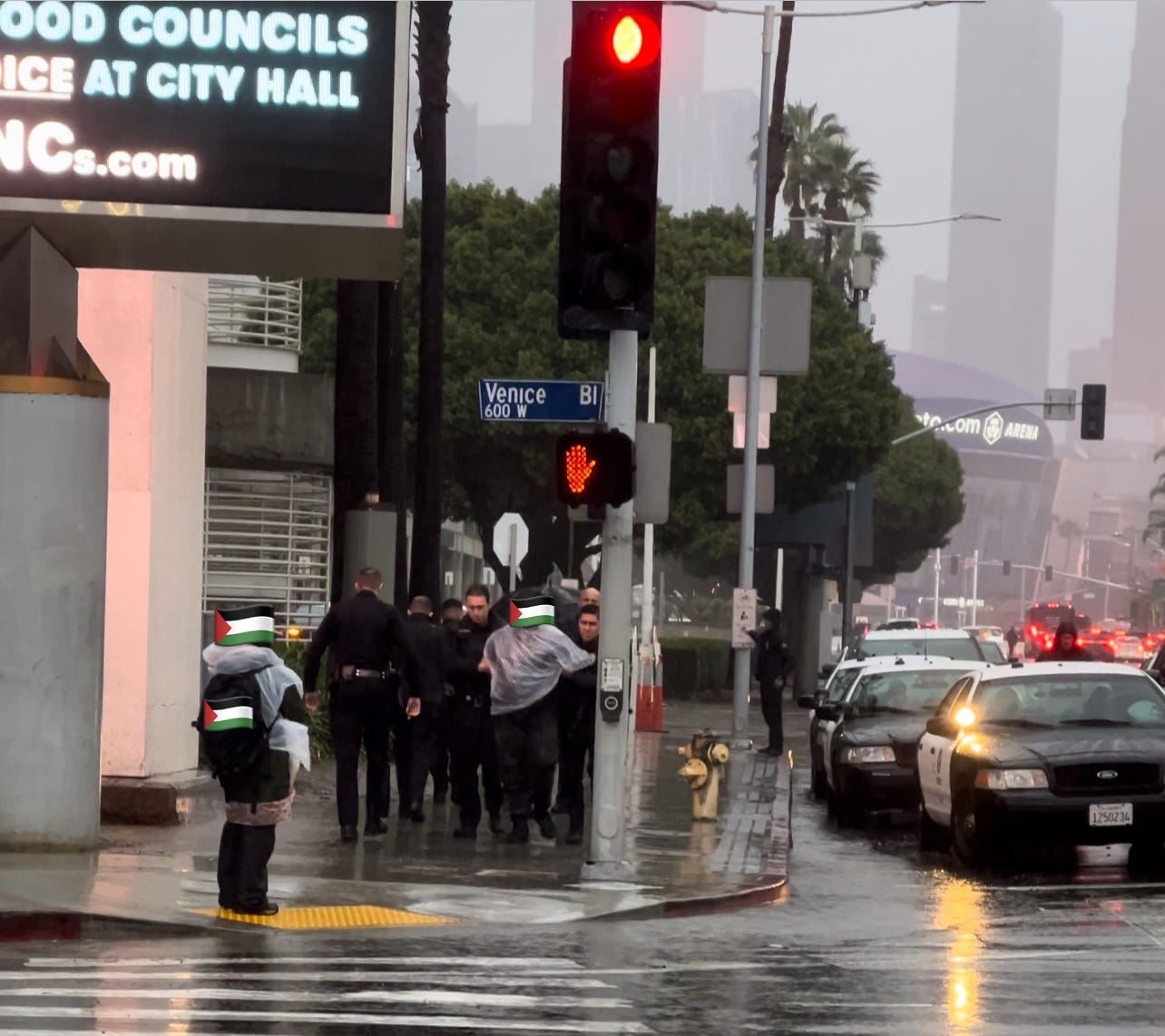Disrupting the Grammys: 'While you're partying, Gaza's starving’
How protesters briefly brought havoc to the Grammys.
“I hope lightning strikes the building, electrify all those motherfuckers,” a man chatting with the bus driver said casually as we passed the venue hosting the Grammys. “Oh no.. don’t say that, we don’t wish that,” the driver responded. Both sentiments highlighted how people feel about celebritydom in LA: Either a need to protect its economic benefits and cultural prestige, or a deep sense of resentment for all the trouble it causes the city on a regular basis.
During award season, and on this day, this trouble was traffic, road closures, and heavily tinted SUVs zooming past homeless encampments toward the Crypto.com arena where the Grammys were being held. And it was pouring. Los Angeles was expecting to get months of rain in a matter of days. This isn’t Seattle, we aren’t built for that.
I got off the bus. Palestinian Youth Movement was hosting a protest a few blocks away that it advertised as a disruption to “business as usual.” I have covered many PYM marches in downtown LA and found that their actions typically resulted in a lack of disruption. But I got a tip there would be a separate protest happening, organized by an autonomous group—meaning it wasn’t brought forth by an official organization, but instead people coming together with shared interests for a specific goal. Their goal for the day was to disrupt the Grammys, or at least cause some annoyance for its elite attendees.
There were two main entrances for attendees to enter: North on Olympic and Figueroa, or South on Venice and Figueroa. Everything in between was blocked off. This protest group, small in size, chose South.
There were a few cop cars present, but both LAPD and LADOT seemed unprepared to handle the interference. As the demonstrators created a line blocking cars from entering, the officers seemed confused and unsure how to engage. Empowered, the group then expanded their blockade, attempting to stop traffic northbound on Figueroa and eastbound on Venice. With the relentless rain and pooling floodwaters, this caused momentary chaos. Irritated drivers started to honk. Some even threatened protesters with their vehicles.
“I’m trying to go home,” one driver said. Some cars weren’t heading to the event but just happened to be on the road. Their commute was going to be delayed anyway, it just turned out to be for Gaza instead of the Grammys.
More police arrived. The cops seemed annoyed they had to get out in the rain. The captain gave a warning for protesters to go to the corners of the streets. The group complied, but changed tactics as well. They utilized the barricades that LADOT had already set up, moving them in front of cars at the intersection. Then when the walk sign was green, they blocked the intersection with their bodies. They did this for the rest of the afternoon.
At one point, the driver of a black SUV got out to move the cones, throwing them at demonstrators before getting back into his car and skirting between people in the streets. Another driver tapped a protester with his car in front of the police. An officer responded by telling the demonstrator they should have gotten out of the way.
Covering all of this was personally scary at times. At one point, I was stuck in the middle of the crosswalk while a herd of giant black SUVs on both sides of me charged past. The drivers and the cops didn’t seem to care what happened to me or the protesters, who they probably saw as one. They were all consumed by their own annoyance and desires to carry on with their day.
When a Tesla driver got out of his car and started yelling at protesters, I kept thinking: How can you be so disconnected to, one, drive so recklessly among the crowd, and two, to not understand the reason why these young people were standing in the middle of the street, in drenching rain, risking their safety?
After the police issued a final dispersal order, the group ended its action. In total they blocked the streets for about two hours. They scattered away in different directions. Two of the members were grabbed by the police. An officer pushed one of them against a wall, causing the person’s scarf to choke them. They were then escorted to the crosswalk and told to leave—which is what they were trying to do in the first place.
From that point on, the Grammys would continue uninterrupted. The only mention of the genocide happening in Palestine came from Annie Lenox, who called for “a ceasefire and for peace ever.”









